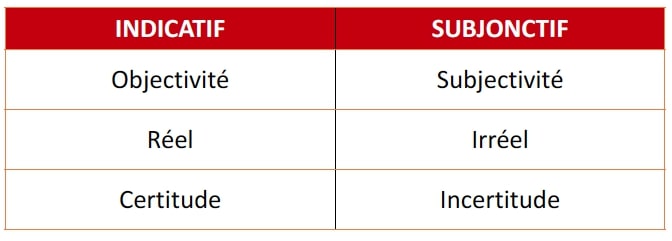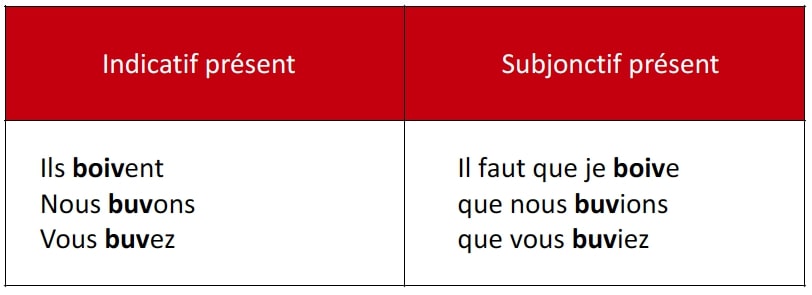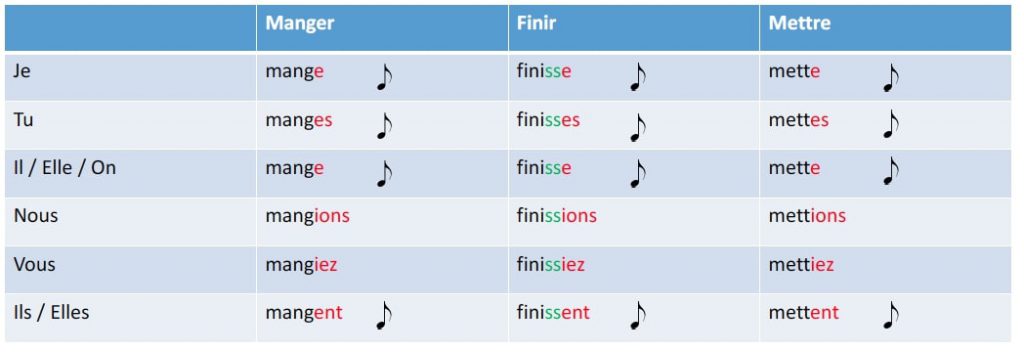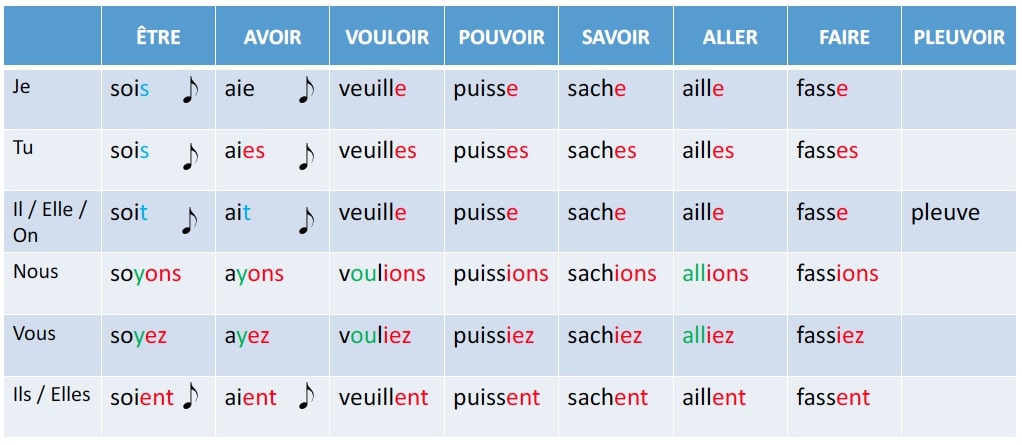Updated on January 8, 2024

Subjunctive vs. indicative in French: What are the differences?

So you have reached level B1 in French? Bravo! You are now going into a very strange world: the subjunctive! What’s the subjunctive in French vs. the indicative? What’s it for? When to use it? What does it look like? And what are the notable differences from the indicative? Read the following and the subjunctive will hold no more secrets for you!
That’s the first question to ask yourself! Like the indicative, the subjunctive is a mode, and like the indicative, a mode contains several tenses. Usually in A1, we start with the present tense of the indicative, then the past tense (of the indicative), the imperfect tense of the indicative… Except that we don’t always specify that it is the indicative “mode”.
In the subjunctive, there are three tenses – present, imperfect and more-than-perfect – but to reassure you from the outset, only the present tense of the subjunctive is used. You can find the other tenses of the subjunctive only in 19th-century literature.
It is opposed to the indicative:

Unlike the indicative in French which expresses a reality – a certainty, the subjunctive evokes the unreal or subjectivity. It is used to express:
It’s also used with certain phrases followed by “que”:
To express affirmation or certainty with “objective” verbs, use the indicative :
When using the verb “espérer”, the indicative should also be used:
As you will see, the French indicative and the subjunctive are intimately linked by their formation. Here is a simple recipe, conjugation is like a Lego game:
– Think of the ” ils/elles ” (3rd person plural) in the present tense of the indicative.
– Remove the ending “-ent” and you get the base of the subjunctive!
– Add the endings :

Example : LIRE (to read) > Ils lisent > lis- > que je lise, que tu lises, qu’il lise, que nous lisions, que vous lisiez, qu’elles lisent.
When “nous” and “vous” have a different root from “ils” in the present tense, they keep this difference in the subjunctive tense:


The musical notes mean that the pronunciation is the same, despite the different endings.
The present subjunctive of -ER verbs differs very little from the present tense of the indicative, or it looks like imperfect (for the “nous” and the “vous”), that’s why you may never have noticed it before!

For pronunciation, keep in mind that the 1st, 2nd, 3rd person singular and 3rd person plural always have the same pronunciation (even when not indicated by the musical note).
When verbs that express certainty (indicative) are used with negation, it becomes a doubt: the subjunctive is used.
If it can reassure you, the subjunctive is an unloved and mistreated mode, much to the displeasure of the Académie française, which is trying to save it at all costs. In some sentences, the subjunctive can seem a bit pedantic and thus create a social gap.
In the North of France, the Ch’tis – a French dialect and huge success in the cinema – hardly use the subjunctive, they replace it with the indicative.
For the rest of France, either the subjunctive disappears or it is distorted as with the verbs “voir” (“to see”) and “croire” (“to believe”) (correct form in brackets):
If you want to have fun with it, you can listen to the Odelaf song “Le Subjonctif” that plays with the tenses by not conjugating them very well.
And if you want to save the subjunctive, you can read the novel – very accessible at level B1 – by Erik Orsenna (a member of the French Academy) Les chevaliers du subjonctif (2004) which poetically states that: “Le subjonctif est le mode du doute et de l’espérance. Le subjonctif est le mode de l’amour.” (“The subjunctive is the mode of doubt and hope. The subjunctive is the mode of love.”)
And as Master Yoda would say to Luke Skywalker in French: “Que la force soit avec vous !” (“May the force be with you!”)